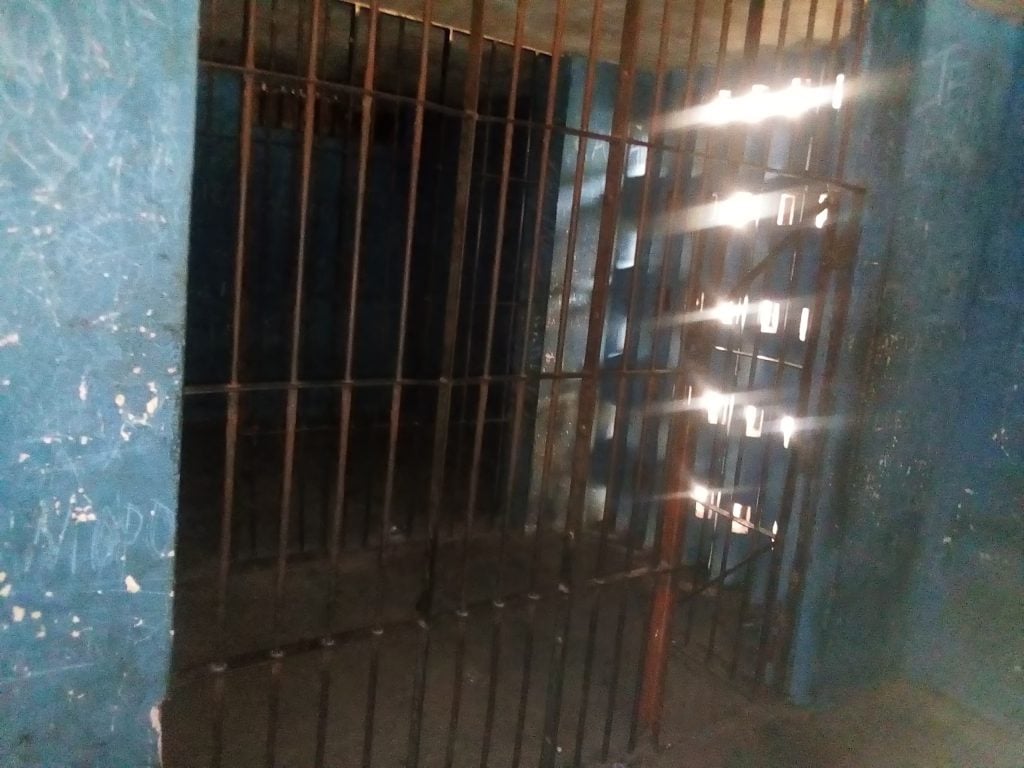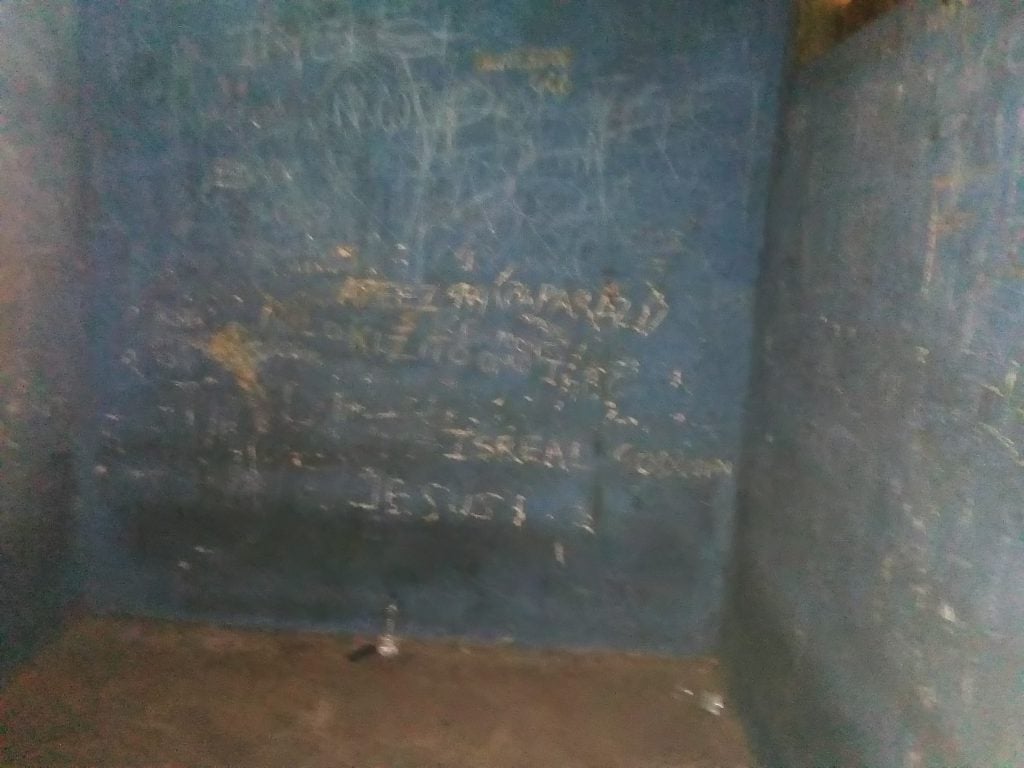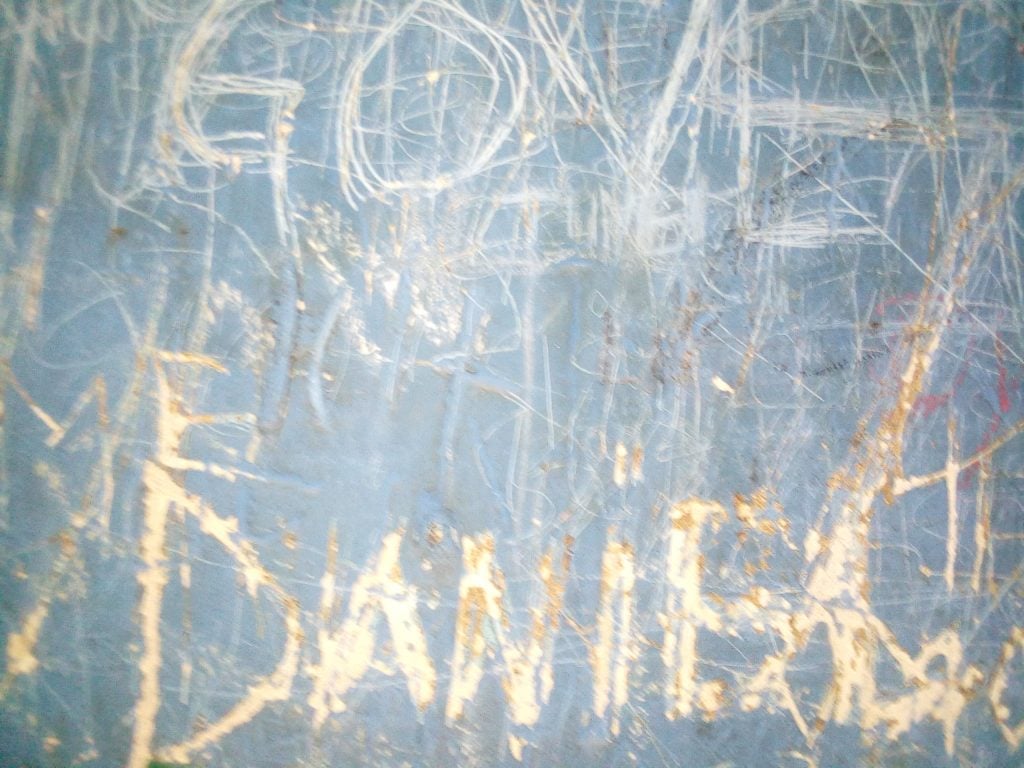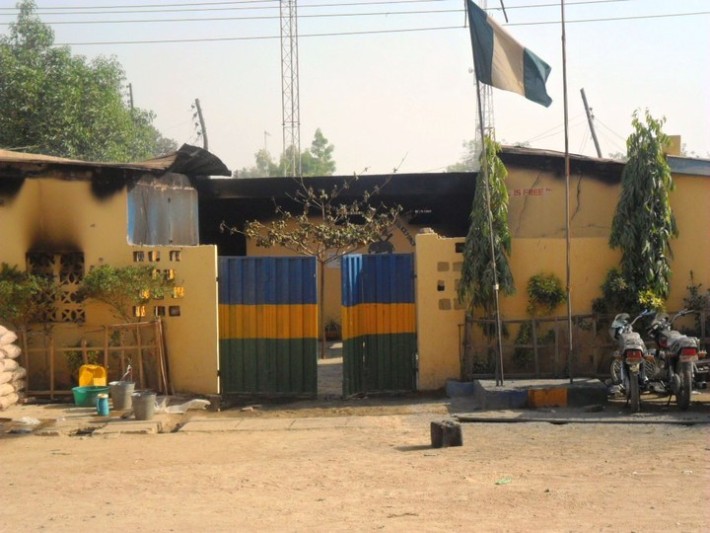Investigative journalist ‘FISAYO SOYOMBO spent two weeks in detention — five days in a Police cell and eight as an inmate in Ikoyi Prison — to track corruption in Nigeria’s criminal justice system, beginning from the moment of arrest by the Police to the point of release from prison. To experience the workings of the system in its raw state, Soyombo — adopting the pseudonym Ojo Olajumoke — feigned an offence for which he was arrested and detained in police custody, arraigned in court and eventually remanded in Prison. In the first of this three-part series, he uncovers how the Police pervert the course of justice in their quest for ill-gotten money.
It cost only N500 for a policeman to arrest me, and N1,000 for another to hurl me into a cell. Of course they didn’t know I was a journalist; I had assumed a pseudonym and grown my hair long enough — for 10 months — to blend with artificial dreads. My locks were tinted in gold and almost all my facial hair removed. I cut the profile of the kind of youth the Police indiscriminately railroad into their notoriously ramshackle vans for no reason, for onward transfer to their cells. One look at me and the typical policeman would have mistaken me for a compulsive hemp smoker, an incorrigible internet fraudster or a serial drug abuser.
The Police in Nigeria have a history of illegitimate arrests and extrajudicial killings. In July, Chinedu Obi, a musician better known as Zinquest, was accosted for spotting tattoos and shot in Sango, Ogun State. Only two months ago, policemen in Lagos shot two unarmed civilians — they died instantly — suspected of phone theft. In April, anti-cultism policemen killed Kolade Johnson, a civilian, at a football viewing centre in the Onipetesi, Mangoro area of Lagos. One bus driver in Ayobo, Lagos, was even shot dead by a policeman in May for refusing to part with his money. In Ifo, Ogun State, in April, a policeman shot a motorcycle rider during an argument over N100 bribe. All five incidents happened within the last six months; all six victims died in the end.

Therefore, it didn’t take too long after my arrest for me to begin to see the Police in their true elements. My supposed offence was that someone had sold me a car worth N2.8million in November 2018; however, after paying N300,000 cash, I began to avoid him — until I was eventually apprehended on Monday July 8. Once I was arrested and whisked into an innocuously passing danfo, I imagined I would be immediately taken to the cell of Pedro Police Station, Shomolu, Lagos. But it wasn’t that straightforward. I was first shoved behind the counter; and after half-an-hour, the Crime Officer (CO), Inspector Badmus, fetched me into a back office where I was grilled for close to two hours, culminating in a written statement from me that represented his thoughts more than mine. He asked me questions but only allowed me to write the answers that suited him; if the answers didn’t, he cut me short halfway.
Advertisement
The complainant registered the case with a policewoman, and soon after they were haggling over the fees. Chigozie Odo, the policewoman, had rejected his offer of N500. After some five minutes of talking, he handed her a N1,000 note. Immediately the money touched her hand, Odo turned on me with insults.
The suspects in the cell had gathered by the iron barricade, hungering for an entrant, clinging to the bars and chillingly rolling their eyes from the policewoman to me and then to the complainant. My heart began to pound: Are they going to pummel me? Would they accept it if I offered some cash in exchange for beating?
A MINOR IN THE CELL
Advertisement
As I take my first steps into the cell gate, I immediately attempt to ingratiate myself with my ‘new friends’ by asking what they want — food or drink? It endears me to them, and the policewoman immediately proclaims me the new “leader”. It didn’t take quite long for the food to arrive; it was around 3pm or thereabouts and they apparently hadn’t been fed that day yet. As they guzzle their food — rice for some, bread for others — I embark on a quick, surreptitious survey of the cell.
To the right is a small opening housing a bathroom and a latrine oozing with thick fecal stench, one I very quickly resolved my buttocks would never near. To achieve this, I would eat only once daily — bread with a bottle of water or soft drink — throughout my stay. Opposite it is the smallest of the inner cells. Lying awkwardly on the floor is a mat too small to contain even one person; but every night, five or six cross-breathing inmates share it. Being the warmest inner cell, it proved the popular cell of choice — particularly at nighttime. Further ahead are two bigger cells, dingy and often damp, each measuring roughly 16 by 16 metres, with fading, defaced blue walls. Holding my head in my hands, I slump into one of the cells, enveloping myself with thoughts of the hardship to come.
“Do not disturb; the leader is in a very bad mood,” a faint voice arrests my thoughts. “Let’s come back to see him later,” adds another — that of a boy who, by his mien and slender build, couldn’t possibly be more than 15. What‘s a minor doing in detention? I motion them over.
Austin, a gate keeper at a small company in Lagos, was accused of illegal gun possession by his boss after an unlicensed pistol was reportedly found inside the gate house. He vehemently denied knowledge of the act, but his claims of innocence had been ruined by his previous backdoor sale of the company’s 50 litres of diesel for N8,000. Determined to let him rot in the police cell, the accuser left with Austin’s phone, obliterating any chance of phoning a friend or family to process his bail.
Advertisement

With Austin is Loris, the minor whose arrest and detention was masterminded by her sister. Loris had electronically withdrawn the sum of N23,500 from his sister’s account, without her knowledge, to pay for the General Certificate Examination (GCE) of the West African Examinations Council (WAEC). Since the exam actually costs N13,950, it is either Loris stole more than he needed or he registered at a special centre. The boy claims his sister declined his initial requests for the funds when he asked. Asked how he pulled off the funds transfer, unnoticed, he replies: “I know where she keeps her ATM; I also know the password.”
Also in the cell is Buchi, a young man accused — and he didn’t deny it — of stealing a phone. Small matter it may have been; but after the Police tracked him to his house with the same phone he allegedly stole, his accuser claimed N100,000 had also gone missing from the car where the phone was ‘moved’. Like Buchi, the fourth suspect is also accused of stealing a phone worth N17,000; too bad for him because the Police then went on to set his bail at N50,000.
The Police have always insisted bail is free, but this has got to be the most barefaced lie of the century! In 2015, and again in 2017, the Police embarked on a nationwide bail-is-free campaign; apparently, it has been a futile experiment. Coincidentally, while I was in that cell, Zubairu Muazu, the Lagos State Police Commissioner, was busy saying “any policeman who collects money for bail is not different from a kidnapper; the only difference is that everyone knows where you keep the suspects”.
Advertisement
AN INNOCENT MAN IN POLICE CELL

We continue our chit-chat without the knowledge that two young men, one imminently, are primed to join us. The first, Uchenna, was accused of attempting to dispossess a motorcycle rider of his property. But he fiercely denies, insisting a quarrel only broke out between the duo because the rider could not provide the balance of his fare for the ride. “How can anyone say I tried to snatch a motorcycle in broad daylight yet no weapon was found on me?” he argues, to the bemusement of all. “I had no knife, no gun, no spade. No cutlass or machete. Do you rob in daylight without any weapon?”
Advertisement
Much later, sometime between 8pm and 9pm, another young man joins us. The accusation against him was that he stole a phone from a barbing salon. By his own admission, the CCTV had reportedly identified him as the culprit. Yet he denies any wrongdoing. “I swear I didn’t steal the phone,” he murmurs. “I swear!” Who’s this one fooling? The CCTV fingered you as the thief yet you say no? You think everyone here is a criminal? There’s a journalist here, you know?
“Wait a minute,” I ask. “Didn’t they show you the CCTV footage? Didn’t the Police watch it before arresting you?”
Advertisement
“I didn’t watch it, neither did the Police,” he answers. “The Police arrested me because the phone owner said I was the thief. They didn’t watch any CCTV footage.”
I still do not believe him until the rest of us rouse from sleep the following morning to find out he was gone. The CCTV footage had finally been watched, and it turned out the wrong man had been arrested! An innocent man had spent a night in jail over a crime he knew nothing about.
Advertisement
N50,000 BAIL FOR FIVE HEMP SMOKERS

Five for the worth of one; that was the scenario on Tuesday when the phone-theft suspect was freed. Shortly before midday, five new suspects — one male, the others female — join us. The quintet — two of them are sisters — had been arrested at a hemp-smoking joint in Gbagada. On arrival, they all look subdued, their faces sunken, their hairs dishevelled.
Maxwell makes no claim at sanctimony. “They caught the girls in the act, but me, they should never have arrested me,” he laments. “I f**ked up big time.”
Tall, fair and stunningly handsome, Maxwell had learnt of the arrest of his girls, and had sped to the scene only for residents to clandestinely signal the Police that he was one of them, in fact their ring leader. Maxwell was bullish in maintaining innocence as the Police tried to arrest him, but he would earn himself a succession of slaps after a strand of hemp was found in his wallet. “I no know say I get one tiny claro for my wallet,” he says. “I f**ked up, mehn.”
The Police set their bail at N10,000 each — N50,000 for all five.
HOW THE POLICE COOK UP CRIMES AGAINST SUSPECTS
On Wednesday, I discover, in the crudest of ways, how the Police often exaggerate the allegations against suspects — to drive up their bail. It is evening and I have not had a bath all day, so I politely ask a policewoman, fresh from assuming duties, to open the cell so I can draw water from the tap servicing the cells.
“What is your name?” she first asks me, before shifting her gaze to a whiteboard detailing the offences of each suspect in the cell. “Ojo Olajumoke? Your offence doesn’t warrant you having a bath. Cell no be for enjoyment, abeg.”
Crestfallen and unable to read the board from afar, I beckon a cellmate over for help. “Your offence reads ‘stealing and hijacking of car,’” he tells me. “Did you actually hijack a car?”
I hadn’t. The original complaint against me was that I’d bought a car worth N2.8million, paid only N300,000 and defaulted on the balance. Car hijacking? Stealing? By framing me, the Police violated Section 340 (f) of the Police Act 2004, which compels them to exhibit “strict truthfulness in the handling of investigations, and in the giving of evidence”.
Maxwell and the girls were framed up, too. On the whiteboard, they were designated as “cultists”, but their real offence was that they smoked hemp.
THE EARLY-MORNING BAIL RITUAL

Friday morning, sometime just before 10am, a policewoman unlocks the main cell and asks me to step out. By then, all my regular cell mates had been released, and I had become the longest-serving suspect. For all of us, our detention for more than a day was illegal. Section 35 (5)(a) and (b) of the 1999 Constitution of the Federal Republic of Nigeria (as amended) are explicit: detention should be for a period of one day “in the case of an arrest or detention in any place where there is a court of competent jurisdiction within a radius of 40km”; and “in any other case, a period of two days”. Detention can only be for a longer period if a court so decides. Meanwhile, a magistrate court is less than 15km from Pedro Police Station.
Soon, I would find out how much the complainant paid the Police to get me to court: N2,000 for typing, N2,000 for fuel, N1,000 for photocopying. So, either bail or court, and at the very worst scenario, the Police have devised a means of collecting at least N5,000 from every suspect and another N5,000 from the complainant at the point of leaving the cell.
Before long, a police van pulls over in the sweltering afternoon heat. The IPO handcuffs my hands and leads me into the van while the CO wheels it away, leaving behind a hail of dust, a station brimming with police officers filled with hate and a cell housing their preys.



